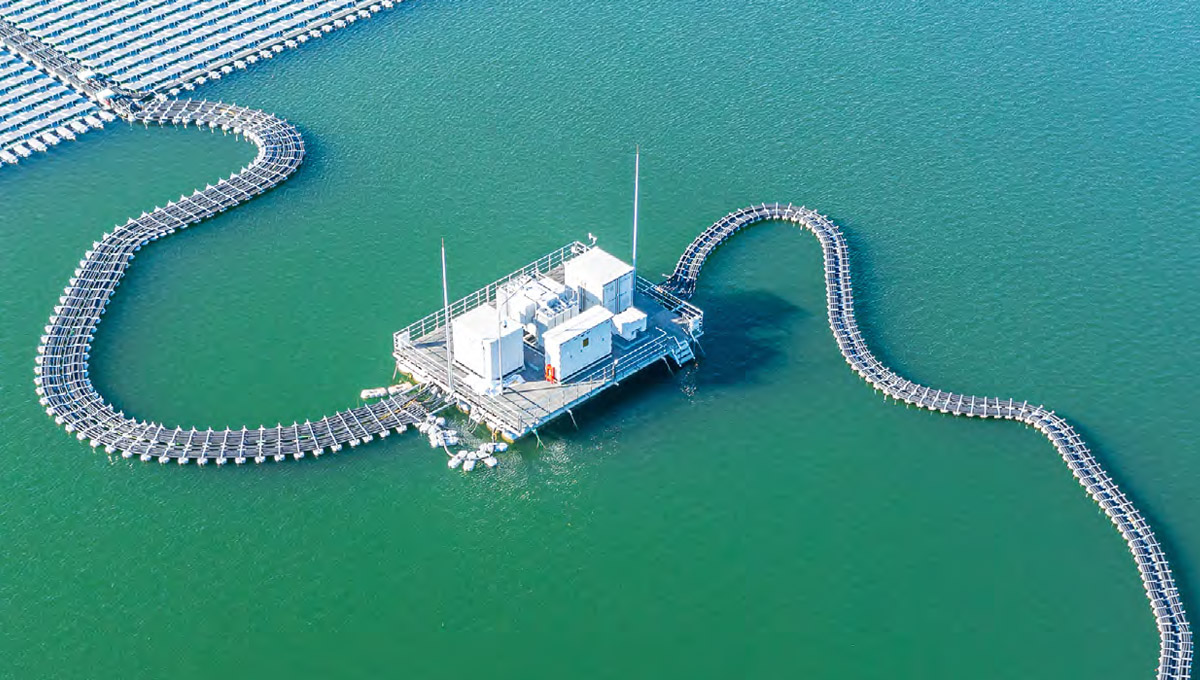African Mining Trends 2023: Report
Our 2023 African Mining Trends Report outlines our perspectives on the four main themes shaping the mining sector in Africa: the huge opportunity for new metals and minerals, the importance of social impact, the challenge of operationalising sustainability targets, and the necessity for collaboration.

The outlook for mining in Sub-Saharan Africa is interesting. On the one hand, there is massive, almost unprecedented opportunity and appetite for Africa’s minerals and metals, whilst on the other, global insecurity and price fluctuations are steering investment away from “riskier” choices in countries without secure infrastructure and stable politics.
The sector experiences global macroeconomic trends toward price squeezes and volatile commodity prices yet is set to play a crucial role in the global energy transition as the demand for critical minerals ramps up. As these opposing forces play out, the African mining sector hangs in the balance of immense – or missed – opportunity.
1. The opportunity for Africa
There is growing consensus that Africa has a generational opportunity as a key player in global decarbonisation, electrification, and the transition to more sustainable mining. Africa is well endowed with critical minerals and metals, and the global move toward renewable energy represents a structural shift in the demand for critical minerals, with some estimating up to a sixfold increase global demand.
The demand for the minerals and metals required for electrification and battery production is set to increase threefold by 2040 and a sixfold increase by 2050. Copper, Cobalt, Nickel, Lithium, Aluminium and Zinc are among the metals and minerals that will be in highest demand for the transition to renewable energy.
It is certain that if the world is to meet its decarbonisation and electrification goals, it needs to significantly ramp up the production of renewable energy, which is metal and mineral intensive. The mining sector, particularly in Africa, stands to benefit deeply, but it risks political instability and environmental damage if it goes about this in the wrong way.
Actions to support African mining investment
There are ways for the sector to maximise on the opportunity ahead. Here are the main actions that, we believe, will help to maximise the value that Africa can receive from the increased demand for its metals and minerals.
- Support new entrants – both in government and private sector
- Build skills and develop capability and capacity in both private and public sectors
- Maximise the value chain
- Lead by example to accelerate the transition to sustainable operations
- Collaborate across the industry, solution providers, subject matter experts and government to solve complex problems for common stakeholders
- Create a low-risk investment environment and policy certainty.
There is a clear view that Africa has a leading role to play to ensure diversification of supply chain away from China and to meet growing energy demand. As we enter the next commodity super-cycle, it is critical that governments and mining companies align on the value creation for both shareholders and stakeholders.
2. Social impact
In the past, social impact and stakeholder engagement have typically focused on compliance-based approaches, so that mining companies might only consult the communities in which they operate at the exploration or build phase.
However, this is starting to change. There is renewed understanding and impetus toward ensuring that communities are considered key stakeholders right through the lifecycle of mining – from exploration, to tailings, and post closure. This, too, has become central to the conversations around mining on the African continent, where social license to operate – and social value creation – are critical to get right.
Whilst many mining companies might have the intention to have a positive social impact, it has become difficult for mines to prioritise communities beyond compliance. Focusing, instead, on a risk-based approach to community impact, and making an effort to consider how surrounding communities can be a key lever to the long-term success of mining operations, will help to shift the industry’s focus.
"Considering communities as a key lever to the long-term success of mining operations will help to shift the industry’s focus."
Ensuring that the value chain is managed responsibly is a key challenge to ensuring social, and environmental, responsibility. Initiatives like the “Battery Passport” of the Global Battery Alliance are attempting to increase transparency across the entire value chain of battery production and provide end-users with a “seal of approval” that the battery has been sustainably sourced and produced. Initiatives such as this will become critical for African resource provision, where there are significant volumes of minerals obtained through artisanal mining.

3. Moving from “intent” to “impact”
The need to transition the mining industry toward more sustainable forms of operating has been a central conversation over the past few years. Many mining companies now have commitments to decarbonisation, waste, and water reduction, etc. However, whilst much of the conversation centres around the need to set these goals and targets and the commitments to frameworks to execute them, much less focus is directed toward the operationalisation of such targets. It’s almost as if the industry knows exactly what questions to ask but aren’t sufficiently providing the answers.
In many ways, this is understandable. Taking a values-based stance toward fighting climate change and environmental degradation is much simpler than embedding sustainability within existing operations, as this sometimes requires a complete overhaul to the operating model. Transforming operations, in conjunction with the ramp-up required to meet growing demand, will be the central challenge for the sector for the near future.
Actions to take toward operationalising sustainability
- Start with the foundation
Whilst a sustainability roadmap will help to prioritise which actions are easier to execute first, operational improvement and operational excellence principles should be the key focus of the first few steps, like ensuring there is an energy baseline, and that variabilities and wastage are understood and improved on. - Be realistic about technology
There are exciting advancements that will improve the ways in which mining operations are conducted, but they need to be fully understood and integrated into operations, which is often challenging. Starting with the basics, implementing operational excellence, and finally integrating automated or digitalised processes is the logical sequence of events. - Reinvest and reinvent business models that are likely to be affected
Operationalising sustainability requires long-term thinking about the whole value chain of the organisation, and mining companies should evaluate their business considering the growing commitments required for sustainable and accountable production. - Rethink the supply chain
A significant number of mining companies have committed to net zero, which requires a significant reduction of emissions beyond scope 1 and 2. This will require mining companies to start to work strategically with key suppliers to improve sustainability operations, as well as looking into sourcing from suppliers who have a proven sustainability record.
4. Collaboration is key
A theme that is likely to be dominant in shaping the industry in the future is the importance of collaboration, a central lever to the industry’s progression. The huge growth in demand for minerals from Africa, the importance of social impact, and operationalising sustainability are all impossible to address in silos. In addition, there is the challenge that as an industry, the mining sector is not clear on how operating models should change in order to execute on all the agendas and priorities at hand. Collaborating and learning from one another will be a key factor to enable industry-wide successes.
Conclusion
The mining sector in Africa is at the cusp of a generational opportunity to capitalise on the growing demand for metals and minerals that are key to the global energy transition. However, in order to ensure that the continent can benefit from the opportunity, it is important that the sector is aware of the risks and enablers at hand, and moves forward with integrated risk awareness.
Understanding the importance of the social impact of mining operations, widening the economic impact of mining on the continent, addressing increased demands for supply chain transparency and sustainability, starting to operationalise ESG initiatives effectively, and levering collaboration with industry players, local governments, their supply chains, and even across industry.
Authors





